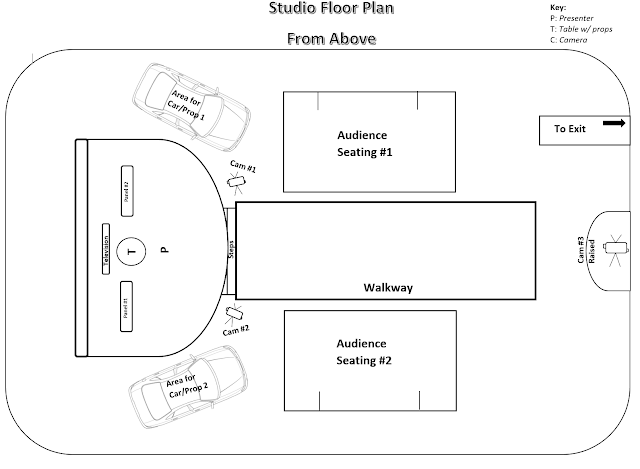Professional Practice Unit | CV Workshop
Research and Approach
Think about your skills.
Look for companies you'd like to work with.
Do your homework - Who's in charge? Do they offer something that you're genuinely interested in?
Show an Interest - Explaining why they've caught your eye and why you could be their dream employee. Don't just send the same thing to everyone - personalise your message. Companies want to know that you're really interested in them.
Follow it through - If you haven't heard anything after a week, call to check that they got your message. Ask for feedback, and check that it's OK to keep in touch. And whatever happens, respect their time, experience and advice - It's all valuable.
Remember To:
- Study the job description & research into the company.
- Then make changes to your CV to suit the role/company.
- Match specific words used in the job description when listing the skills.
Standing Out From The Competition
- Personal Details
Short and to the point, your name & contact details - no need to include date of birth, gender, nationality, marital status etc. Make sure your email address is appropriate!
- Career Profile
A brief statement of no more than 3-4 lines, summarising particular strengths. The purpose of this section is to provide a broad overview of your abilities, aspirations and accomplishments.
- Education & Qualifications
Starting with the most recent, you should list your qualifications, including where you took them (though it's not necessary to list all your GCSE passes.) Summarise, most recent first.
- Employment/work experience
Only the most relevant jobs or work experience should be included in this section; give brief bullet point details of duties and responsibilities. Remember that more detail can be included in your covering letter.
- Relevant Skills
A break down of your key skills, usually in bullet point form. Break down your skills into manageable sections, such as creative, time management, IT, online research, any software etc.
- References (Optional)
Optional. You can indicate that references can be supplied on request, or give the name and position/job title of your referees without including contact details. Be sure to gain the permission of any referee before giving their name.
Effective Designs
- Be expressive and creative
- Keep it to 2 pages maximum
- Put your name and email on every page
- Use a professional font (e.g. Arial or Times New Roman)
- Never use graphs, tables or images of yourself
- Branding - Can use these graphics across business cards & covering letters
Covering Letters
Who should I address it to?
It should be addressed to the person who will be dealing with your application, check the company website or phone the company to get a name of the relevant person.
A good covering letter should be between 200 and 250 words, highlight your key skills and make it's relevant to the role.
Final Points
If sending your CV and covering letter via email, save and attach your CV as a PDF so that it's easy to read and cannot be edited by a third party, can also be easily viewed on mobile/tablet devices.
The Follow-Up Phone Call
It is worth making a follow-up phone call a few days after sending your application. Apart from demonstrating your enthusiasm and professionalism, this will also confirm that the CV has been received by the person.
Job Application Tracker
Download a job application tracker online, this will be a valuable tool to build up your contacts and remind you to follow up from your applications.
Interviews - The Next Hurdle
- Take a copy of your CV with you, refresh your memory of the job description.
- Be confident and shake hands firmly.
- Look interested when answering questions.
Things You Shouldn't Do:
- Sit down until the interviewer asks you to
- Fidget or slouch in the chair or fold your arms
- Swear - even mildly
- Criticise your past employers
- Interrupt
- Draw attention to your weaknesses.
- Don't be too enthusiastic.
Remember, most employers like people who:
- Listen
- Answer questions with examples.
- Are brief and keep to the point
- Come prepared
- Appear confident
Think about your skills.
Look for companies you'd like to work with.
Do your homework - Who's in charge? Do they offer something that you're genuinely interested in?
Show an Interest - Explaining why they've caught your eye and why you could be their dream employee. Don't just send the same thing to everyone - personalise your message. Companies want to know that you're really interested in them.
Follow it through - If you haven't heard anything after a week, call to check that they got your message. Ask for feedback, and check that it's OK to keep in touch. And whatever happens, respect their time, experience and advice - It's all valuable.
Remember To:
- Study the job description & research into the company.
- Then make changes to your CV to suit the role/company.
- Match specific words used in the job description when listing the skills.
Standing Out From The Competition
- Personal Details
Short and to the point, your name & contact details - no need to include date of birth, gender, nationality, marital status etc. Make sure your email address is appropriate!
- Career Profile
A brief statement of no more than 3-4 lines, summarising particular strengths. The purpose of this section is to provide a broad overview of your abilities, aspirations and accomplishments.
- Education & Qualifications
Starting with the most recent, you should list your qualifications, including where you took them (though it's not necessary to list all your GCSE passes.) Summarise, most recent first.
- Employment/work experience
Only the most relevant jobs or work experience should be included in this section; give brief bullet point details of duties and responsibilities. Remember that more detail can be included in your covering letter.
- Relevant Skills
A break down of your key skills, usually in bullet point form. Break down your skills into manageable sections, such as creative, time management, IT, online research, any software etc.
- References (Optional)
Optional. You can indicate that references can be supplied on request, or give the name and position/job title of your referees without including contact details. Be sure to gain the permission of any referee before giving their name.
Effective Designs
- Be expressive and creative
- Keep it to 2 pages maximum
- Put your name and email on every page
- Use a professional font (e.g. Arial or Times New Roman)
- Never use graphs, tables or images of yourself
- Branding - Can use these graphics across business cards & covering letters
Covering Letters
Who should I address it to?
It should be addressed to the person who will be dealing with your application, check the company website or phone the company to get a name of the relevant person.
A good covering letter should be between 200 and 250 words, highlight your key skills and make it's relevant to the role.
Final Points
If sending your CV and covering letter via email, save and attach your CV as a PDF so that it's easy to read and cannot be edited by a third party, can also be easily viewed on mobile/tablet devices.
The Follow-Up Phone Call
It is worth making a follow-up phone call a few days after sending your application. Apart from demonstrating your enthusiasm and professionalism, this will also confirm that the CV has been received by the person.
Job Application Tracker
Download a job application tracker online, this will be a valuable tool to build up your contacts and remind you to follow up from your applications.
Interviews - The Next Hurdle
- Take a copy of your CV with you, refresh your memory of the job description.
- Be confident and shake hands firmly.
- Look interested when answering questions.
Things You Shouldn't Do:
- Sit down until the interviewer asks you to
- Fidget or slouch in the chair or fold your arms
- Swear - even mildly
- Criticise your past employers
- Interrupt
- Draw attention to your weaknesses.
- Don't be too enthusiastic.
Remember, most employers like people who:
- Listen
- Answer questions with examples.
- Are brief and keep to the point
- Come prepared
- Appear confident



Comments
Post a Comment